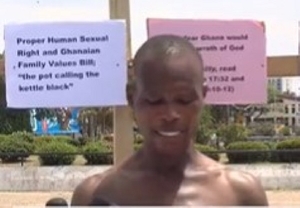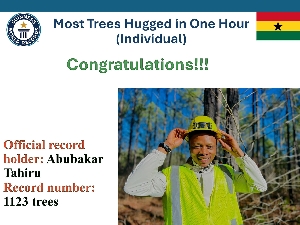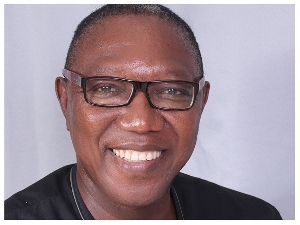His Lordship, Mr Justice Vincent Cyril Richard Arthur Charles Crabbe, is a human being who, by reason of, some error, lives with us, mortals, in human form. Like Mahatma Gandhi, Mother Theresa and Nelson Mandela, I am convinced that he belongs in another realm. At his age, he is so strong and so mentally alert that it will be a crime to call him a retiree: this, I suspect, is why at this ripe old age, he still consults for the Republic of Ghana as the Statute Law Revision Commissioner at the Ministry of Justice.
The first Electoral Commissioner of Ghana (indeed, it was he who set up the E.C.) and a former Justice of the Supreme Court, he was Chairman of the Constituent Assembly that drafted the 1979 Constitution, having served as draftsman to the Constituent Assembly that drafted the 1969 Constitution. Guess his age! This is not an attempt to write his C.V — I am not worthy — except to add, for the purpose of this piece that he is co-Chair of Ghana’s Coalition for Domestic Election Observers (CODEO).
Mr Justice VCRAC Crabbe is not a man to touch with dirt; nay, not even with the longest pole in the universe. So what I am about to write is not an attack on his person and integrity, it is only in acknowledgment of his own appreciation of the principle behind the free expression of divergent views that I dare to write at all.
For who he is, for what he stands for and for what I fear Ghanaians are capable of doing when their politics is threatened, I propose to him that he should not have accepted the latest state appointment to chair the committee to review views on the electoral register. As judges do when they come to know that one of two litigants in a case before them has any association or is related to them, I think the eminent legal luminary should resign.
The reason is simple: his position on the issue is known: he made it public when he made a pronouncement against the call for a new voters register. I must quickly add — knowing Ghanaians for the type of politics they practice — that pronouncement, by itself, does not make him anti-NPP.
What I am saying in this article is that considering the wealth of knowledge and experience he brings to the work of such a committee, I wish he hadn’t spoken so soon. He is the best qualified for the job. Of course, mere mortal: how on earth would he have known at the time he spoke that he was going to chair a commission that would look into the same matter!
Having, nonetheless, been appointed, I think he should do what he has always known to be the honourable thing: write a letter to the appointing authority to say “Thank you very much for the honour done me, but I cannot accept to serve in this capacity”.
Why? Because though Yours Truly cannot even imagine how this man of such nobility of heart, whose “word is one” (the real meaning of integrity) would be anything but fair, the other salient ingredient of integrity demands that “one should not only be fair (or objective) but must manifestly be seen to be fair (or objective)”.
In 2002, President Bush set up the National Commission on Terrorist Attacks Upon the United States (popularly known as the 9/11 Commission), and appointed Henry Kissinger, America’s best known Secretary of State, as chairman. From nowhere, a lobby of women, including some whose husbands had died in the 9/11 al-qaeda attacks, started picketing the offices of the Commission. What did they want? They wanted Kissinger to release the names of clients at his consulting firm.
When their demand was not being given the attention they thought it deserved, they released the bombshell. It turned out that the respected Kissinger had had business relationships in the past with members of Osama bin Laden’s family in Saudi Arabia.
Kissinger resigned. In a letter to the president, Kissinger said he was stepping down from the appointment “to remove any questions about even the appearance of a conflict of interest regarding his ties to several organisations and public figures.”
Now, who in the world doubted Kissinger’s personal integrity? But principles were (and are) principles and the salient words were (and are) “to remove any questions about even the appearance of conflict”
Who in Ghana would doubt the integrity of this most respected public servant? The answer is obvious, so this is a rhetorical question. The committee he chairs is made up of men and women of like-nobility, persons, who it will not be easy to sway. But there is a theory in social psychology that argues against trial by tribunals or jury: it has been found that invariably the non-legal members on the panel or jury tend to defer to the member perceived to be very knowledgeable in law or is an expert on the issue on hand.
But come to think of it, this thing goes beyond a question of personal integrity. We owe it to all of us, to the nation, even to generations of Ghanaians yet unborn, to be seen to be upholding principles. It is not about President John Mahama or Nana Akufo-Addo.













